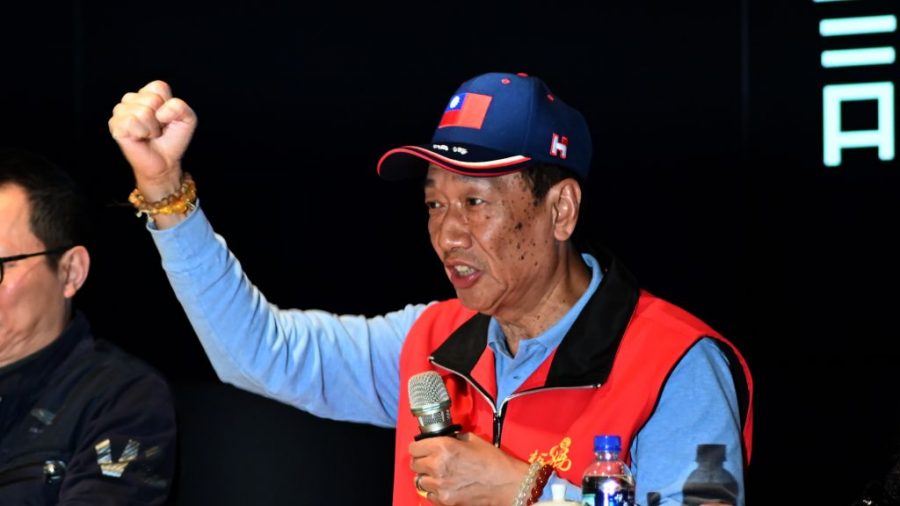TAIPEI—Taiwan’s unique strategic position amid the ongoing Sino–U.S. trade war was made apparent when Apple assembler Foxconn announced measures to shift production away from China.
On March 17, Foxconn chairman Terry Gou inked a memorandum of understanding (MoU) with the southern Taiwanese city of Kaohsiung to develop the city’s smart technology, according to Taiwanese media.
It was during the MoU presentation press conference that Gou mentioned many of his company’s clients have recently requested that Foxconn store its data in Taiwan instead of China. U.S. firms were concerned that Chinese authorities could get their hands on their data, while Chinese clients did not want data to go to the United States directly.
Chinese intellectual property (IP) theft has been the core complaint of the U.S. administration during trade talks. U.S. negotiators are currently discussing how to enforce rules that prevent transfer and theft of foreign IP with Chinese officials.
He further explained that the Taiwanese government would never compel Foxconn to share its corporate data, according to Taiwan’s daily newspaper Liberty Times.
“We don’t know how the trade [war] between the U.S. and China will turn out,” Gou said, adding that “corporate data should be stored at a third-party location, and Taiwan is a neutral location between China and the United States.”
Beijing has a number of regulations in place, as well as broad powers, to demand companies operating in China to hand over customer data.
In June 2017, a cybersecurity law went into effect that demanded all companies operating in China to store their data within China’s geographical area. Foreign companies have complained that such a requirement has made it difficult to protect their intellectual property rights.
Taiwan could serve as a “technology buffer” between the two countries, according to Gou.
Gou added that he envisioned Kaohsiung acting as the buffer, with the city becoming host to a data-processing hub. U.S. data would be stored there before getting sent to China, and vice versa with Chinese firms.
“There is a lot of sensitive information [related to our customers] from the U.S. that we cannot send to China so we will filter that data in Kaohsiung,” Gou said, according to Japanese media Nikkei. “Meanwhile, data from China [customers] is the same.”
As a result, he stated that Foxconn would seek to hire up to 3,000 software engineers to work for its research center in Kaohsiung, focusing on research in artificial intelligence, big data, and software development.
Gou emphasized that Kaohsiung is geographically close to China, making it an ideal location for a data transfer hub, better than Japan or South Korea.
Gou also stated that he planned to move some of the production for its data-processing-related products at factories in the Chinese cities of Shenzhen and Tianjin back to Kaohsiung.
According to the Liberty Times, products made at the Shenzhen and Tianjin factories are mostly for foreign customers, while its other factory in Guiyang, the capital of southwestern China’s Guizhou Province, makes orders for mainland Chinese companies.
Nikkei, citing an unnamed source, said the production shift back to Kaohsiung is at a preliminary stage. The source added that Foxconn is considering the availability of land and the investment environment before making a final decision.
Many Taiwanese tech firms have made similar moves amid security concerns about the Chinese regime’s capacity to acquire sensitive data. In early March, Lite-On Technology, a Taiwan-based consumer electronics manufacturer, announced that it was moving some of its production of power components and power supply systems from China to Taiwan, after its American clients raised security concerns about the items being made in China.
Other firms have moved production out of China in order to avoid U.S. punitive tariffs on Chinese-manufactured tech goods, including Pegatron, Wistron, and Compal. They are Apple suppliers.
From The Epoch Times


